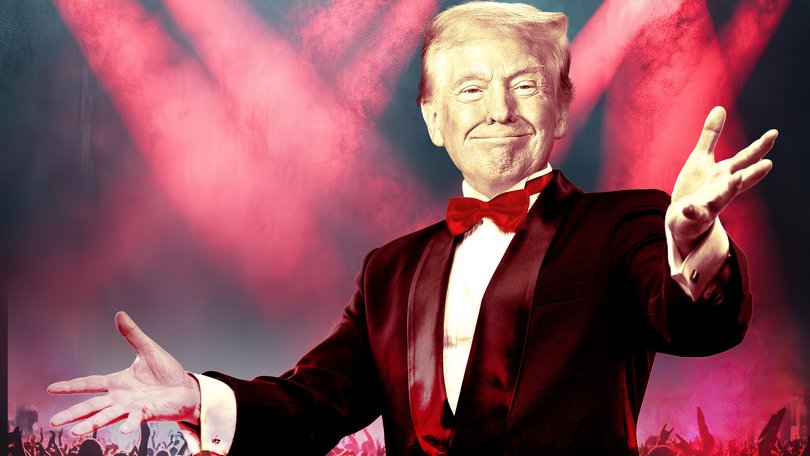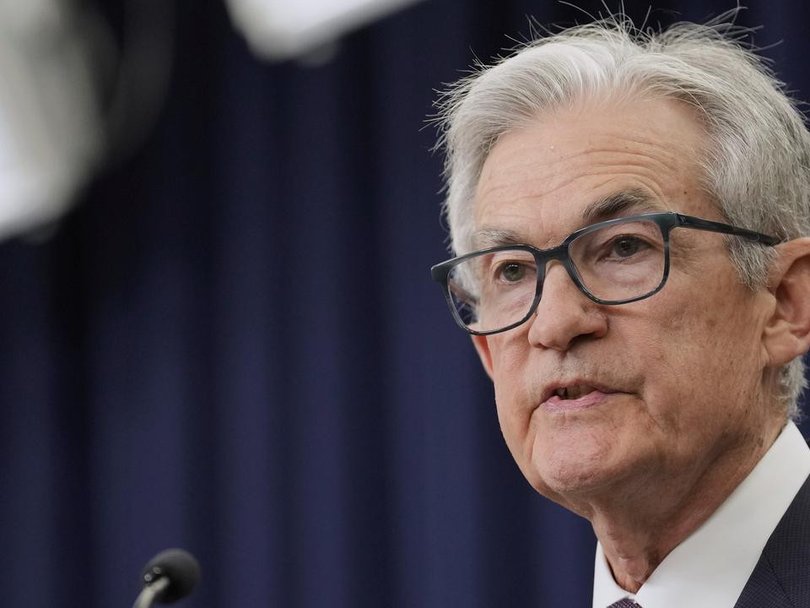LATIKA M BOURKE: NATO’s Mark Rutte has brought Europe a reprieve from Donald Trump, they should not waste it
LATIKA M BOURKE: Donald Trump often entertains in his media performances and NATO was no different.

The first thing to notice about Donald Trump when you see him in person, compared to his larger-than-life television character, is the realisation of his age.
His physique is bigger than appears on camera and he moves slowly.
But his mind is fast. A 45-minute press conference is the entire rollercoaster of showmanship. The funny, the mad, the incoherent, the lucid, the warmth and the absurd — it’s all on show.
Sign up to The Nightly's newsletters.
Get the first look at the digital newspaper, curated daily stories and breaking headlines delivered to your inbox.
By continuing you agree to our Terms and Privacy Policy.“Coming in I saw the most beautiful trees, in fact I want to bring some back with me,” he said, as he praised the Netherlands.
As bizarre as his utterings are, none of them feel fake.
And he is like no other politician when it comes to managing a press conference with hundreds of the world’s press.
Ordinarily, world leaders, like Keir Starmer, Prime Minister of the UK, take questions from journalists from outlets they’ve pre-approved.
But Trump does away with those protocols. Squinting into the packed press theatre at the World Forum centre in The Hague, he would choose a journalist who was successful at grabbing his eye.
He spoke for 45 minutes and if it hadn’t been for the need for Air Force One to be wheels up in a few hours time, there was a sense he would have stood there and taken questions for hours.
Unlike so many politicians, Trump looks like he loves the press and treats his media appearances like a show.
The script is predictable, but nonetheless amusing, shocking, baffling and compelling.
When it came to the American press, he knew them by name and outlet, often berating them, as was the case with CNN, before they had begun their questions.
But his hostilities were preserved for the American reporters. When it came to fielding questions from the international press, he couldn’t have been more accommodating.
His most human moment came when a Ukrainian journalist for the BBC asked if he would consider sending Ukraine more Patriot missile systems.
“She’s all excited,” Mr Trump quipped, as a young woman journalist began her question.
He quickly realised the shakiness in her voice was due to nerves, and desperation for her country and recalibrated his own tone.
“I’m from Ukraine,” she told Mr Trump.
What followed was Trump at his best. Full of warmth and empathy, he began quizzing the young woman about her life, where she lived, her family and her husband fighting on the frontline.
She relaxed and calmed as she told him the details.
“Are you living yourself now in Ukraine?” he asked.
“My husband is there,” she said.
“Wow, I can you’re very …. it’s amazing.” he said.
“Me with the kids, I’m in Warsaw actually, because he wanted me to,” she continued.
“Is your husband a soldier?“ Trump queried.
“He is,” she responded.
“He’s there now?” he asked.
Yeah,” she said.
“Wow, that’s rough stuff, that’s tough.”
She simply nodded.
It was a moving, touching and transfixing exchange — like watching an emotional bout of ping pong.
Trump told her he would consider selling Ukraine the Patriot missiles: “We’re going to see if we can make them available.”
It was a telling lesson. Trump clearly likes people and wants his company to feel relaxed around him. He is also moved by human stories and emotion.

Seconds later, the compassion was gone as he flicked to vindictive vaudeville as he launched into an attack on Fed Chairman Jerome Powell. “I think he’s terrible.”
But the true star of the NATO 2025 show was Mark Rutte.
He bought Europe a crucial lifeline with his deft handling of the President who was charmed by the flattery and the “royal treatment” he was given in Rutte’s home city of The Hague.
Trump was originally slated to sleep overnight at a hotel by the seaside.
The beach and designated hotel had been closed to the public for weeks as part of security preparations.
At the last minute, it was announced he would be sleeping at the Royal Palace where he dined upon arriving in the Netherlands on Wednesday.
It was the perfect touch.
He told reporters he “slept beautiful.”
His good mood made for a successful summit.
The continent is not abandoned. It has a President backing a rearming Europe and an “ironclad” commitment to Article 5 — the collective defence treaty.
Trump even met Zelensky and praised the get together afterwards, conceding it was possible Russia’s Vladimir Putin had imperial ambitions and had been more difficult to deal with in trying to end the war, than anticipated.
These were important messages and signals. NATO is safe for now.
China’s Xi Jinping and Russia’s Vladimir Putin know two things — Trump is a President who understands the might of using American military power — as demonstrated by his weekend strikes on Iranian nuclear facilities, and is someone who can be moved by flattery.
While the first is reassuring, the latter that should worry Europe.
It must use this window of opportunity Trump has granted it to truly prepare for life beyond Trump and a changed America, one that is possibly in the hands of a more ideological MAGA.
The worst case scenario, as many in the Baltics fear, is that too many share the views of Spain’s Pedro Sanchez.
The Socialist leader thinks he can meet his defence capability needs by spending 2 per cent of his budget on the military.
The new NATO standards demand 3.5 per cent and an extra 1.5 per cent that can be essentially fudged and spent on defence - related infrastructure. This can range from anything from cyber defences to upgrading roads so they can carry heavy military vehicles.
Then there is the slow pace of rearming. NATO countries gave themselves ten years to reach 5 per cent.
German intelligence is already warning that Putin is preparing to test NATO within 5 years.
By that time, Trump, now a seemingly NATO convert, for however long that lasts, will be out of the White House. What follows may be a Republican far less movable by young Ukranian women journalists telling him their story and susceptible to a Dutchman willing to call him “Daddy” and fawn over him in supposedly private communications.
Many Europeans are sneering at Rutte’s obsequiousness. But his methods are justified. That he is so eager to look like he enjoys the grovelling is a question only he can answer.
European leaders would be better off focusing on the question of how long they truly think the Americans remain dedicated to the security of the continent and how soon they can manage on their own.
It was notable that just two American Democratic Senators formed the entire US delegation to this year’s summit. Neither Chris Coons nor Jeanne Shaheen represent the next generation of American political leaders.
US buy-in into Europe’s long-term wellbeing is no guarantee.
Even as Trump praised NATO and European leaders for their love of country, a patriotism that moved him to thinking the Alliance was no longer a “rip off,” he noted that “in the future” Europe would be capable of protecting itself without America.
Trump delivered a good show in The Hague, it’s now up to Europe to act as though the curtain could fall at any time.

